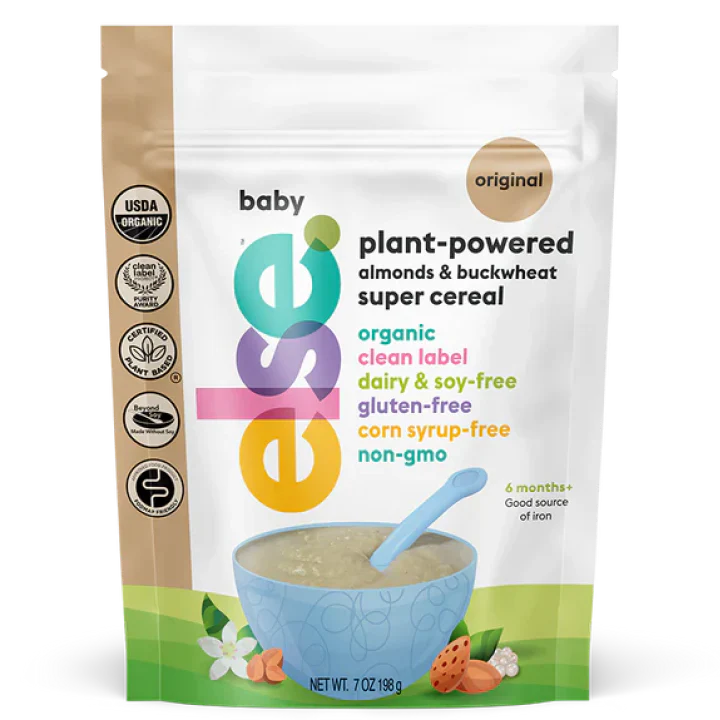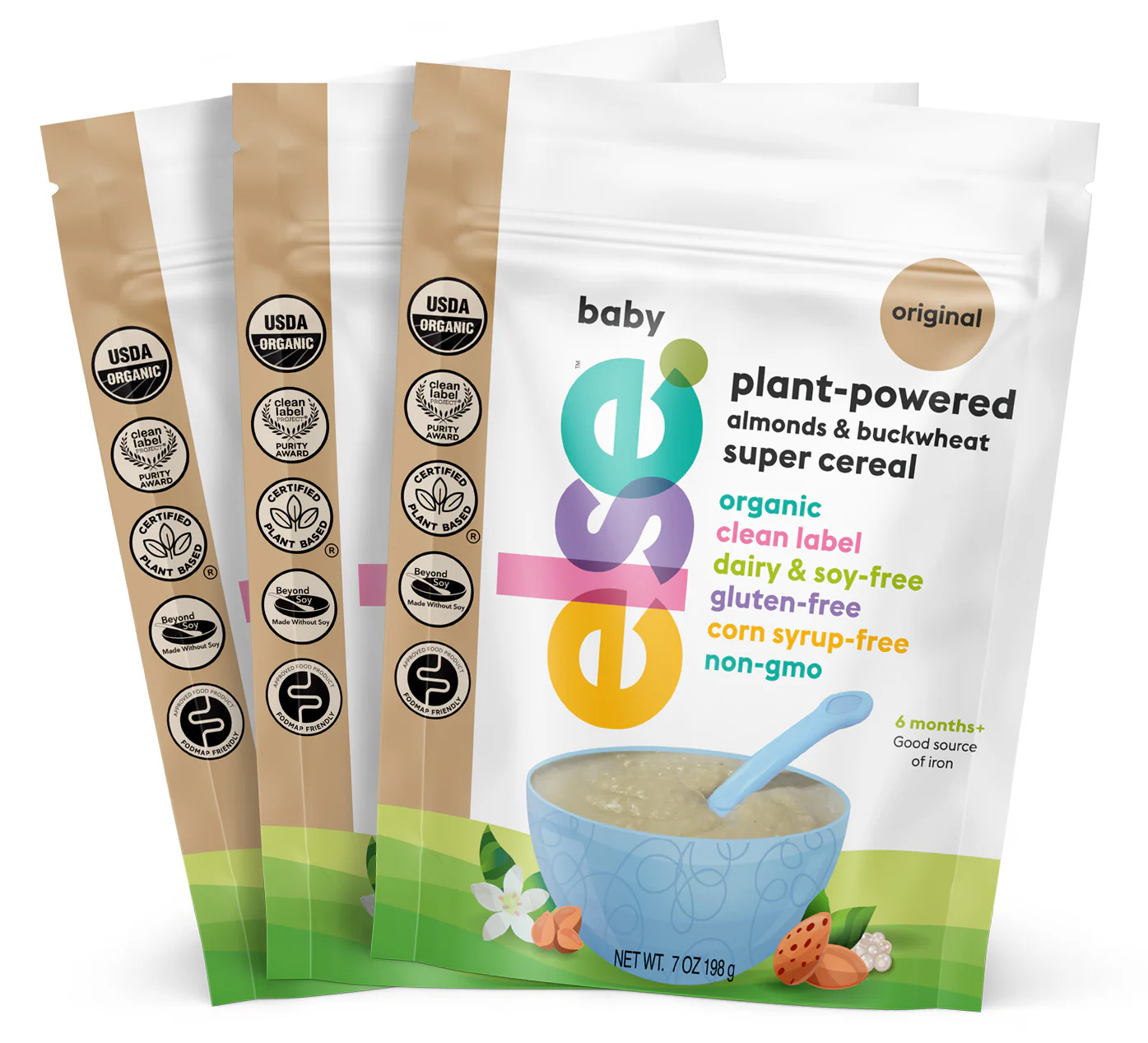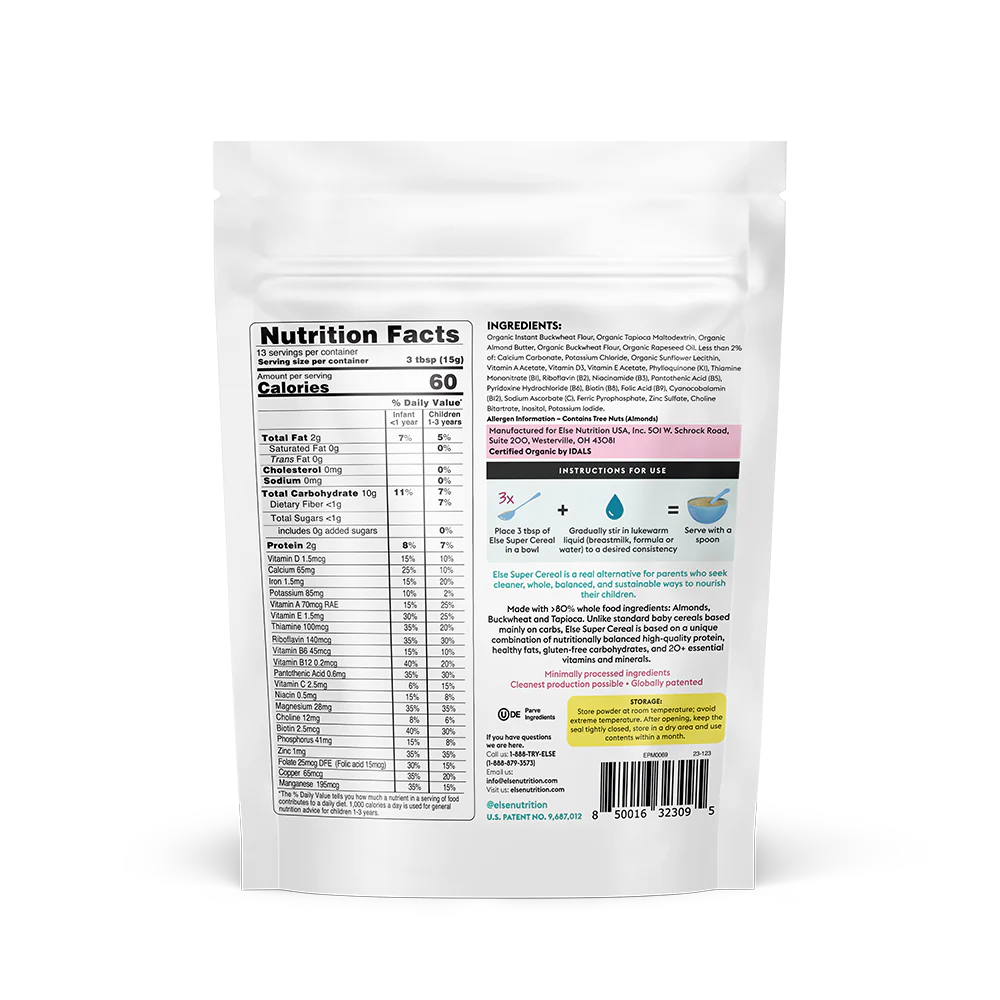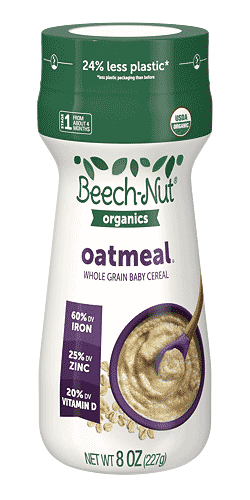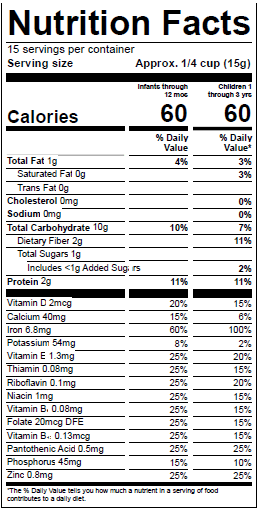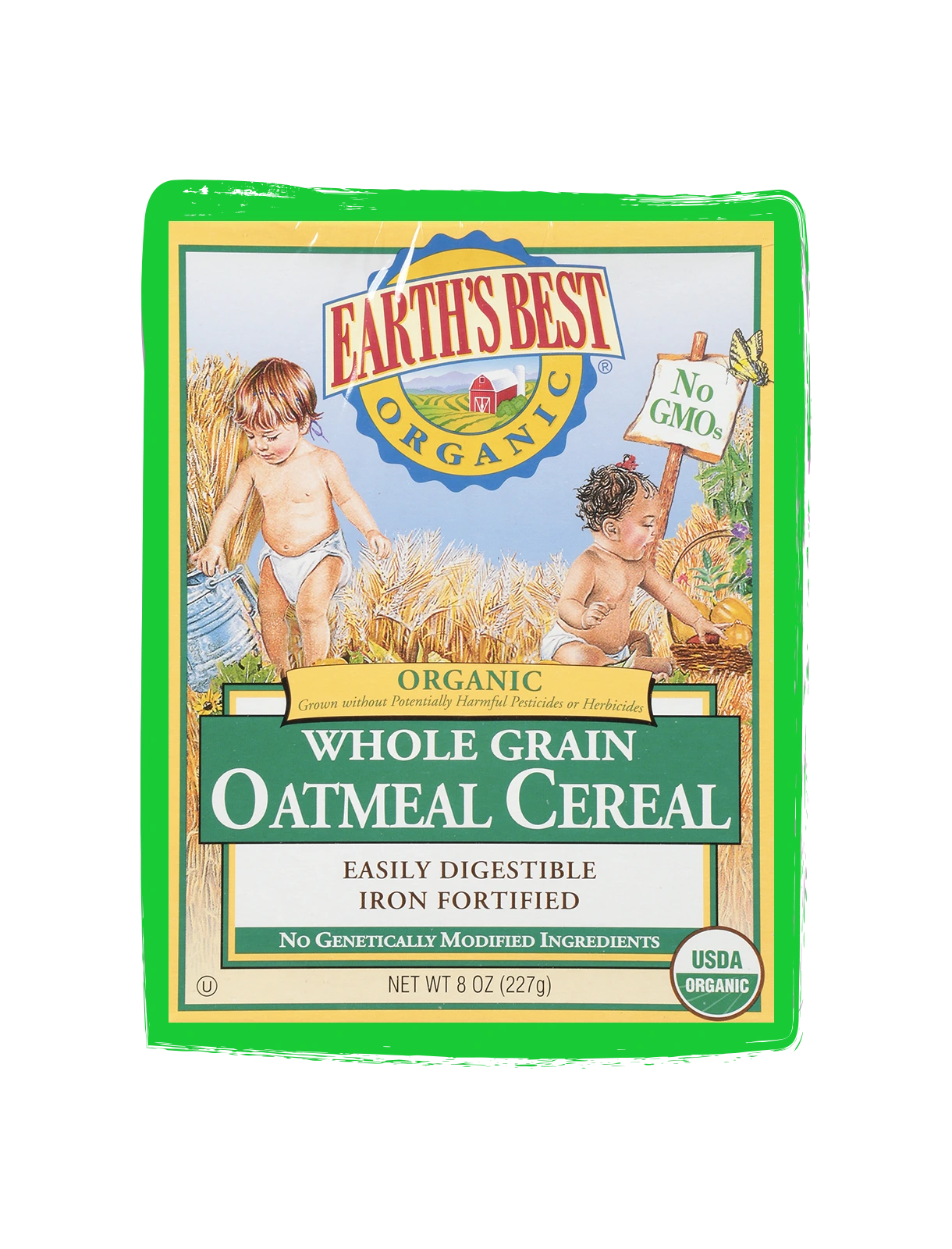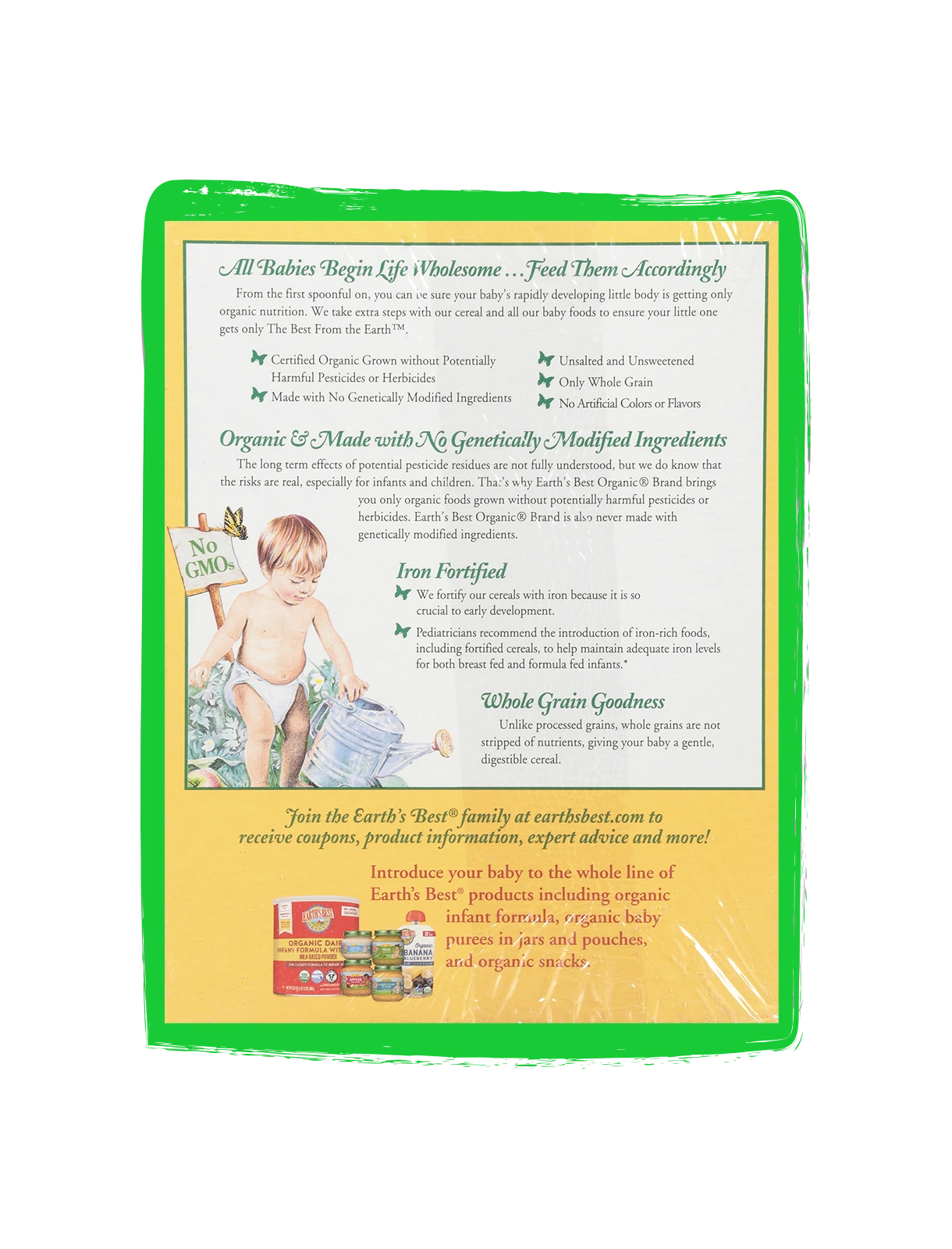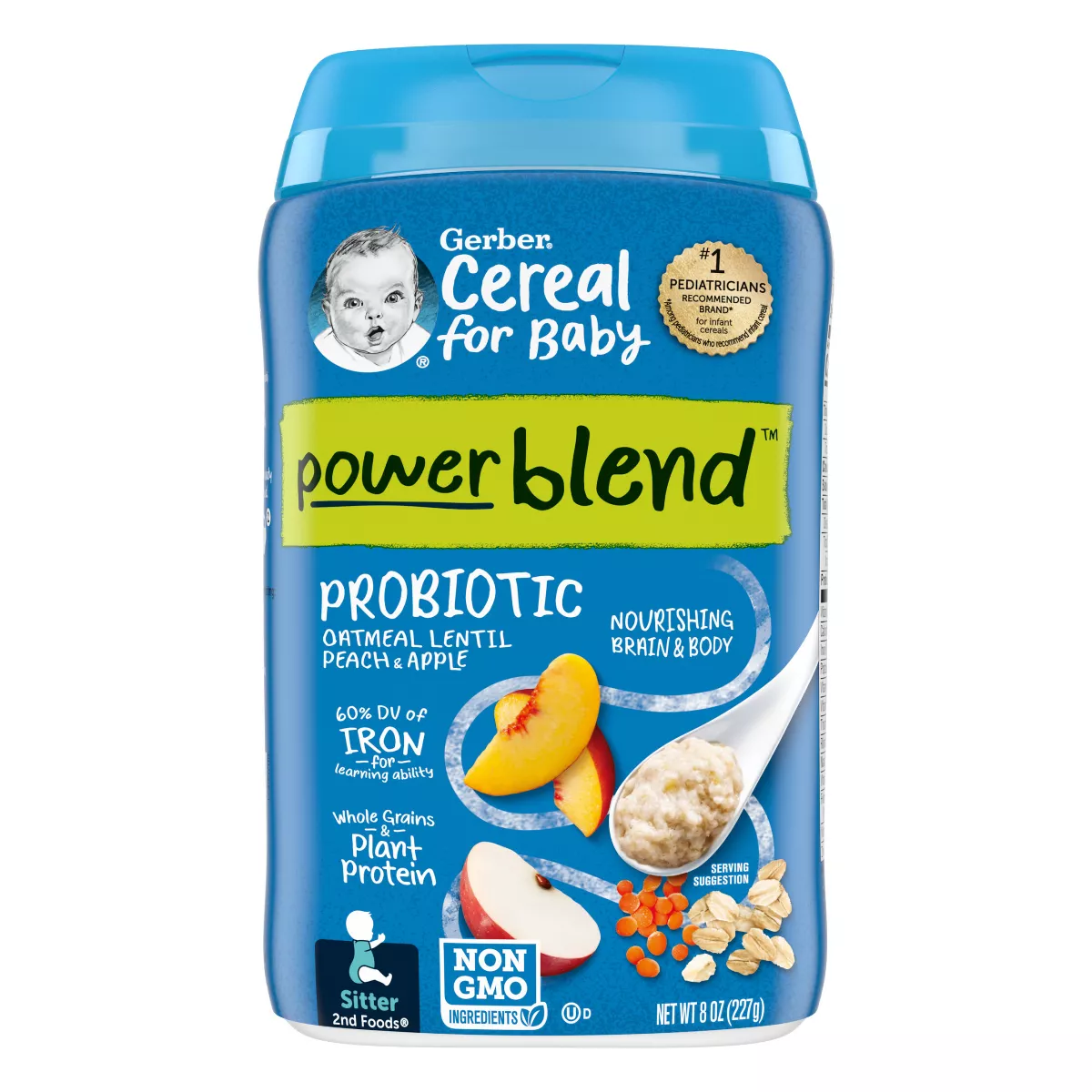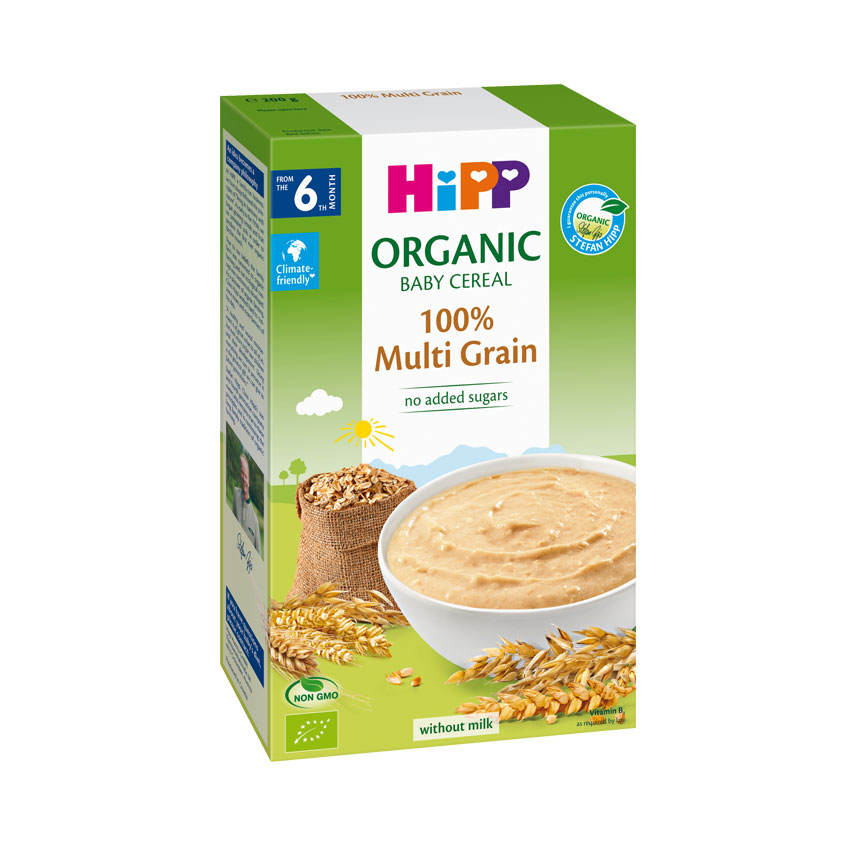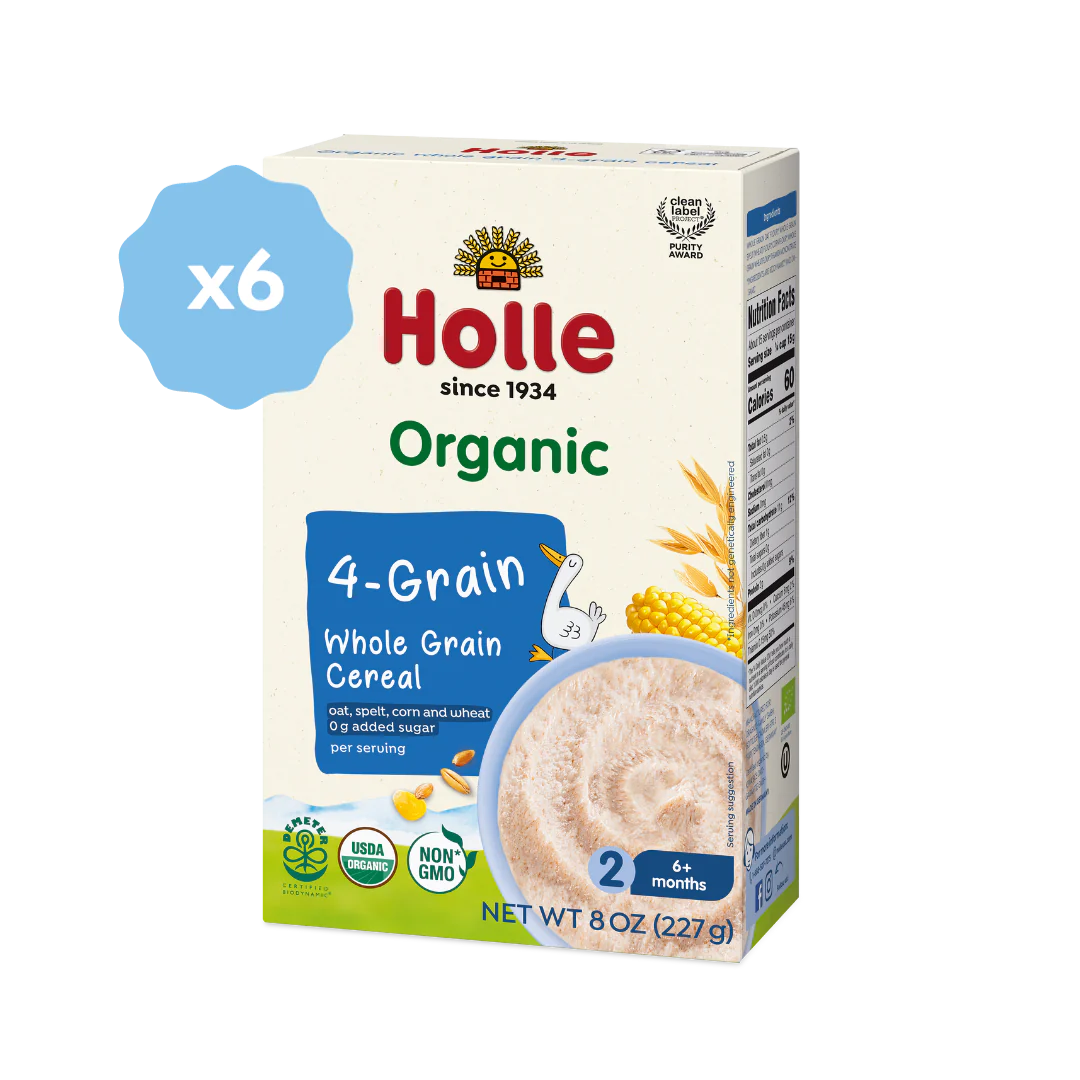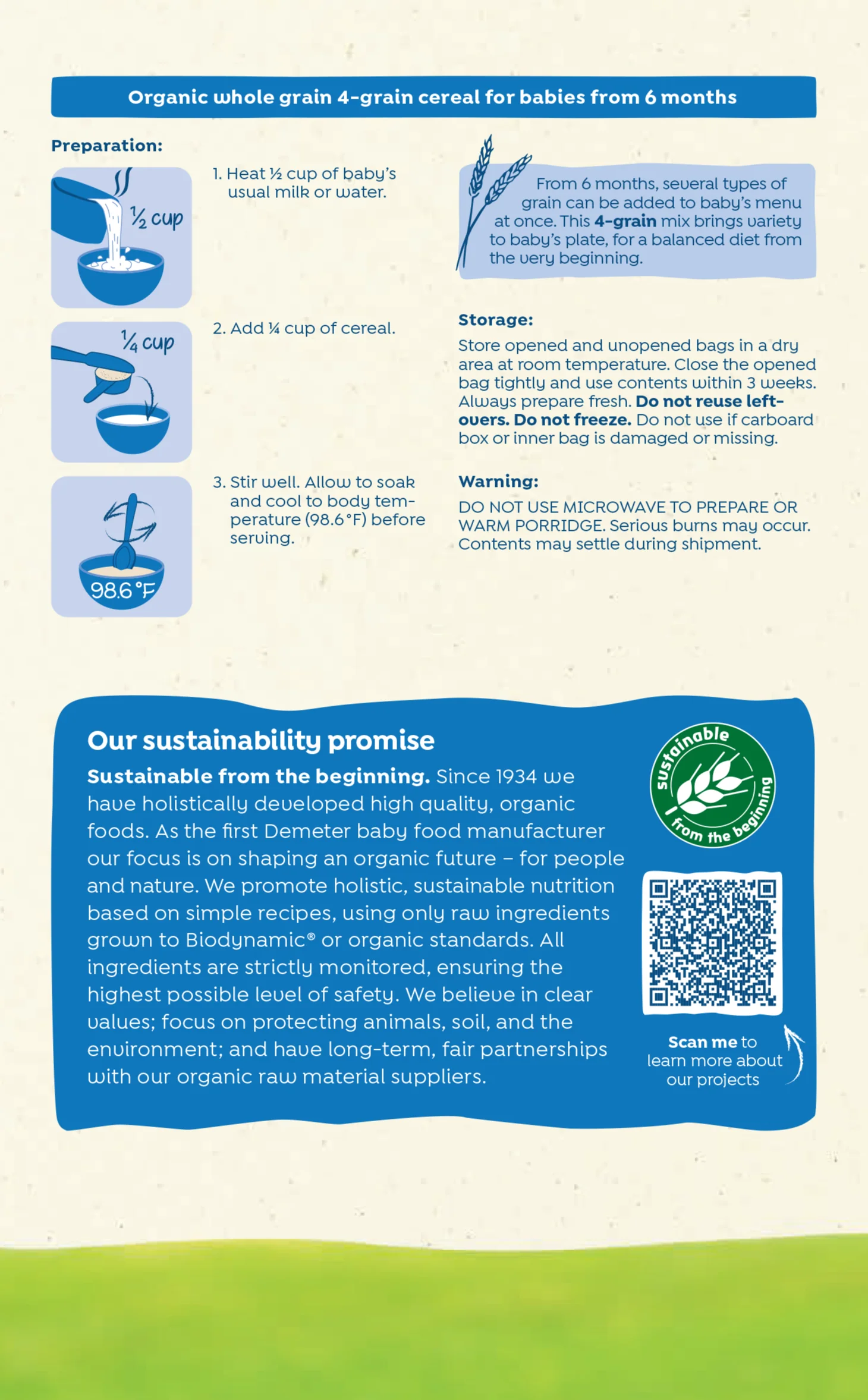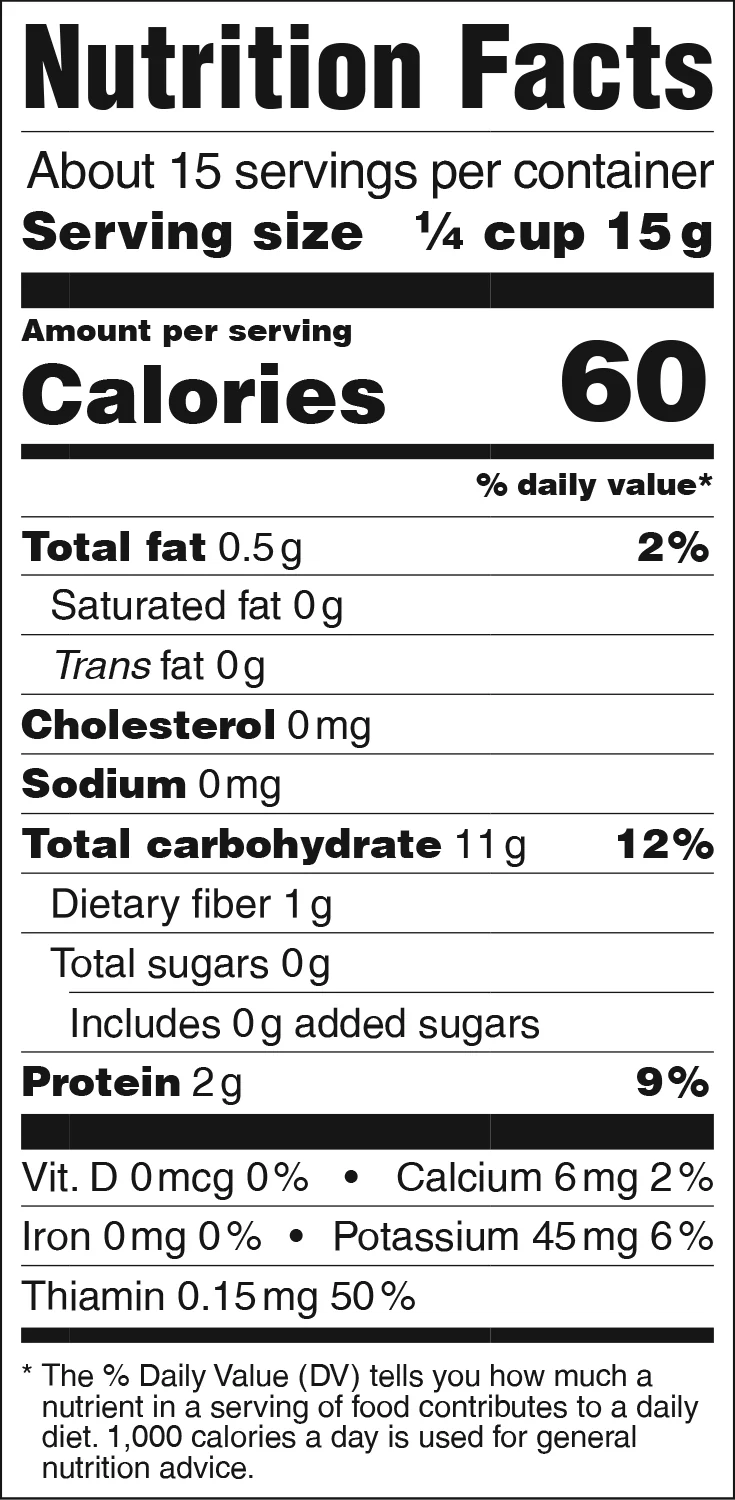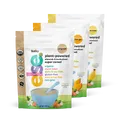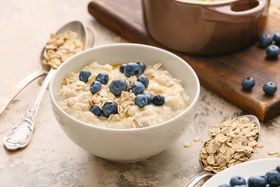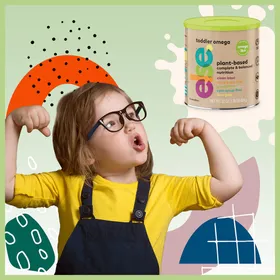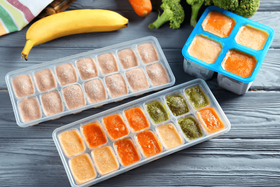6 Best Cereals for Your Baby's First Food: Nutrition From the Start
Give your baby the best start with our expert recommendations for the most nutritious and delicious baby cereals on the market
Published August 28, 2024
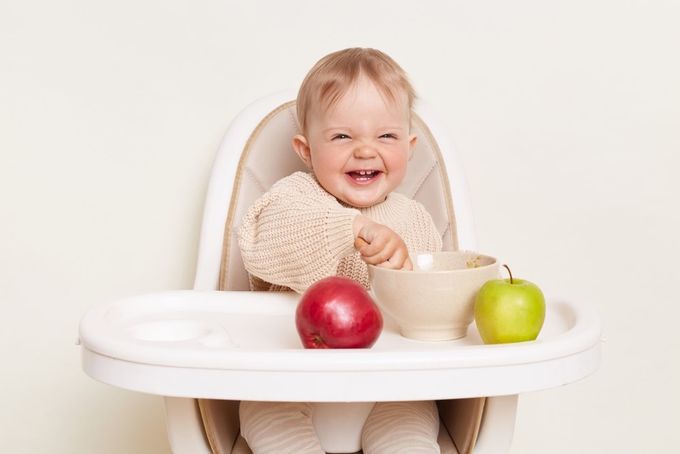
Transitioning your baby to solid foods can be a significant step. As a busy parent, you want to make the process smooth and stress-free. Cereal is a popular starting point, but with countless options available, choosing the right one can feel daunting.
Instead of spending hours researching various brands and ingredients, explore our curated list of nutritious cereals to give your baby a healthy and happy start to solid food.
» Choose organic plant-based baby cereal for a nutritious start
Our Top 6 Picks for the Best Cereal for Your Baby’s First Food
- Best overall cereal for your baby's first food: Else Nutrition Baby Super Cereal
- Best iron-fortified cereal for your baby's first food: Beech-Nut Organics Oatmeal Cereal
- Best single-grain cereal for your baby’s first food: Earth's Best Organic Whole Grain Oatmeal Baby Cereal
- Best probiotic-enriched cereal for your baby's first food: Gerber Probiotic Oatmeal & Peach Apple Baby Cereal
- Best multi-grain cereal for your baby’s first food: HiPP Organic Multi Grain with Buckwheat
- Best budget-friendly cereal for your baby’s first food: Holle Organic Whole Grain Baby Cereal
The Impact of First Foods on Development
While breast milk and formula remain the primary source of nutrition for infants in their first year, introducing solid foods plays a crucial role in their physical and cognitive development. Here's how:
- Nutrient Diversity: Foods introduce a more comprehensive range of nutrients, complementing what babies receive from milk. This diversity supports overall growth and development.
- Iron Intake: Around 5–6 months, babies' iron stores begin to deplete. Iron-fortified cereals can help maintain adequate iron levels, crucial for cognitive development and preventing anemia.
- Texture Experience: Exposure to different textures through first foods aids oral motor development, which is essential for speech and eating skills.
- Taste Preferences: Early food experiences can shape future food preferences. Introducing a variety of flavors early on may lead to more accepting eaters later in life.
- Gut Microbiome Development: The introduction of solid foods helps diversify the gut microbiome, which plays a role in immune function and overall health.
» Read more about expert nutrition tips for babies, toddlers, and kids
Long-Term Effects of First Foods
The choices you make regarding your baby's first foods can have lasting impacts:
- Allergy Prevention: Recent research suggests that early introduction of potential allergens (under medical supervision) may help prevent food allergies.
- Food Preferences: The flavors and textures a baby experiences early on can influence their food preferences later in life. Offering a variety of healthy options from the start may encourage more diverse eating habits as they grow.
- Eating Behaviors: How food is introduced, and the mealtime environment can shape a child's relationship with food. Positive, pressure-free experiences with first foods can foster healthy eating behaviors.
- Nutrient Absorption: The types of foods offered can affect how well a baby absorbs certain nutrients. For example, iron from plant sources is better absorbed with vitamin C-rich foods.
- Weight Trajectory: While not definitively proven, some studies suggest that the timing and type of first foods may influence a child's weight trajectory and risk of obesity later in life.
» Find out how to increase your child's weight
When and How to Introduce Cereal
Knowing when and how to introduce cereal is as crucial as choosing the right one. Here are some guidelines:
- Timing: Most babies are ready to start solids around 5 to 6 months old. They should be able to sit in a high chair, have good head and neck control, and show interest in food.
- Start Slow: Begin with a small amount, about 1–2 teaspoons of cereal mixed with breast milk or formula to create a thin consistency.
- Gradual Increase: As your baby becomes more accustomed to eating from a spoon, gradually increase the amount and thickness of the cereal. Aim for about 1/3 to 1/2 cup daily by around 7–8 months.
- Observe and Adjust: Pay attention to your baby's cues. If they turn away or seem uninterested, don't force it. Try again another day.
- Variety: Once your baby is comfortable with one type of cereal, you can introduce others to provide a range of nutrients and flavors.
» Learn about complementary feeding practices for babies
Cracking the Cereal Code
Introducing your baby to solid foods is more than a nutritional milestone—it begins a lifelong journey toward healthy eating. By carefully selecting suitable cereals and introducing them thoughtfully, you provide essential nutrients and shape your baby's relationship with food.
What works for one may not work for another. Trust your instincts, observe your baby's cues, and don't hesitate to consult with your pediatrician. This journey of discovery is as much about your baby learning new tastes and textures as it is about you learning to read and respond to their needs.
» Give your baby the best start to solid food with organic plant-based baby cereal
The content and advice provided in this article are for informational purposes only and are not a substitute for medical diagnosis, treatment, or advice for specific medical conditions. Always consult a pediatrician to understand the individual needs of your child.







